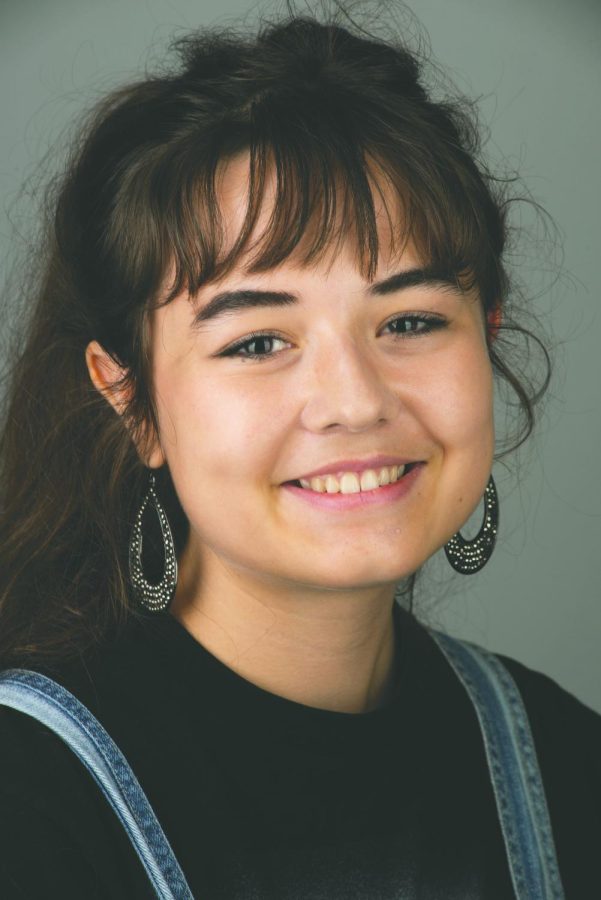OPINION: 23and… me?
Editor’s note: Since the publication of this column, the writer took a DNA test and wished to update this piece with the information that it did not show any Native American genetic ancestry.
In Times Square this summer, one digital billboard stands out among the many bright, neon lights. It’s not repeating images of fashion, shoes, makeup or music releases. The clean, bright images of a smiling young woman — emerging from a pool, laughing, living — advertise the services of 23andMe.
I assume you already know what it is. Most people do, or have at least heard of it. You order a kit from their website, send back a vial of your spit and wait to hear about where you’re from. No, not Ohio. Where you’re really from.
That term might ring a bell in the ears of some — but maybe it doesn’t sound so sweet.
I myself have been asked, on more than one occasion, a variation of that classic question: “What are you?”At first, you might not be sure what you’re being asked. But I know. I rattle off the old inventory: “Well, I’m Irish, I’m Italian. But you’re probably seeing the Native American.” At that last mention, the eyes usually light up.
“Ah, yes. That’s what it is.” That’s what what is, exactly? That little extra something-else-ness in my face? I suppose so. The funny thing is, of course, that I only think I know my own background.
My family’s history, passed down from generation to generation, holds those three things as constants, the ancestry behind my American melting pot. But I’ve never had a test done, never recieved a little map with the highlighted origins of my DNA.
I wonder, sometimes, why things like 23andMe and Ancestry.com have become so popular, especially here. I wonder if it might have something to do with the American identity — once you came here, you were an American (or once they assimilated you). Our collective memory dates back only to 1776. The oral history of ancestors, often, seems far away.
I wonder, as well, if this has anything to do with the willingness, the obsession, of us Americans to connect back to something other than being American. Ask someone their nationality, and they may well go into their history — Irish, French, Scottish, et cetera — forever. And someone will nod their head knowingly. Ah, yes. I see it in your face.
I do understand this need to trace ourselves back further than this shallow history. So much of American identity is built on pain. It is comforting to understand ourselves as something older and deeper than what we are now. Being part of something deeper and richer than our current reality is comforting and human. It feels good to know we are not the first, nor the last, of our own kind.
Maybe this new way of knowing ourselves is a good thing, in that way. It connects us to our past. It gives us a sense of who we are. And I do want that. I don’t mind telling people that little list. I’m proud of it, in some ways.
But something in me hesitates before that test. I’m not entirely sure why. I’m unafraid to find out that I’m not what I was taught to know myself as — I have a feeling it might be different anyway. Perhaps it’s more that I have a sense of self already. Does laying it all out on paper change how we feel? Would it change how I see myself?
For now, I’m going to remain uncertain. I’m not ruling out ever trying it — being part of that bright white billboard, that certainty. Maybe I am a gray area, a culmination of passed-down truths and old photographs, utterly without a map. But when it comes to who I am, I cannot help but think I am more than percentages. We all are.
Cameron Gorman is a columnist. Contact her at [email protected].



